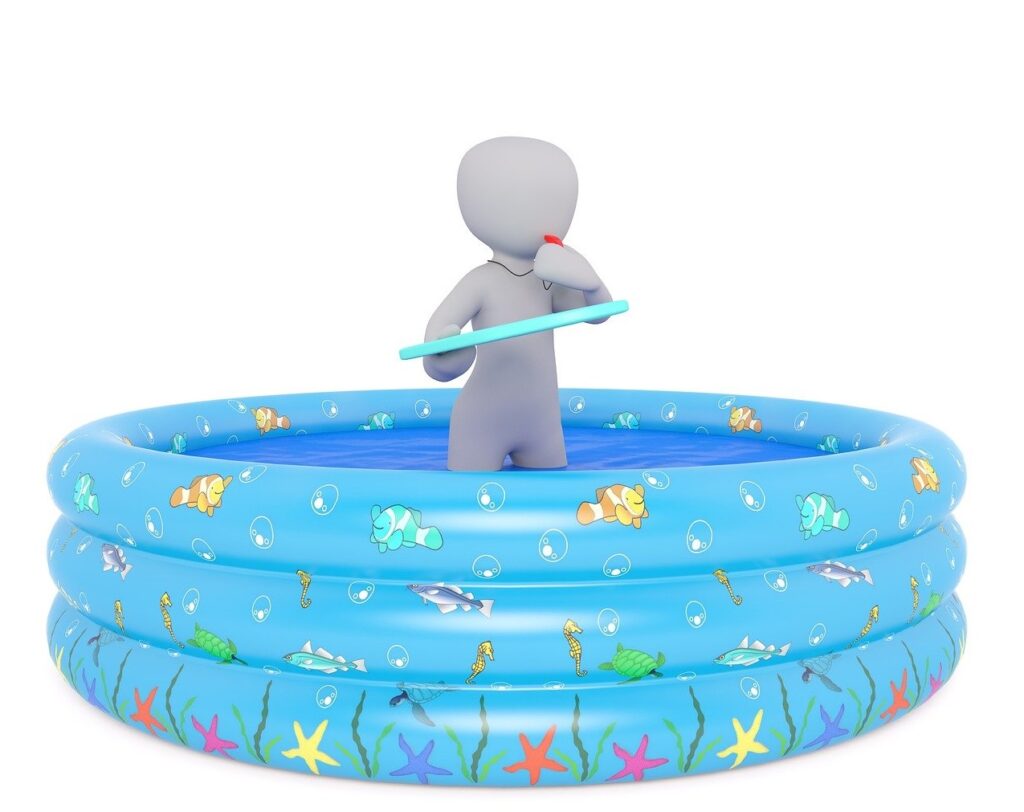
When purchasing products, a reseller has a lot to consider and assess:
- How long will I keep the product?
- What profit will I be able to generate?
- Where and how can I store the product?
With products such as TCG cards or Lego® sets, a professional reseller with many years of experience can often estimate the holding period and target price well, but a young and inexperienced reseller already faces initial difficulties here.
It’s nice to have a reselling niche where the goods are sold cyclically and the selling price is quite easy to estimate. So the perfect entry for young resellers, but of course also a possibility for “old hands” to expand the product range.
What does reselling seasonal goods mean
What is meant by seasonal goods, which products are recommended, and what advantages and disadvantages are there, will be the subject of the following article:
Definition of seasonal goods
Seasonal goods are items that are usually sold exclusively in one season, for example (high) summer or winter. These items are offered in bulk by large supermarket chains and online retailers during the respective season and are offered at high discounts after the respective season, as demand falls rapidly.

Now a concrete example for clarification:
In summer, when temperatures are warm, swimming pools are in high demand and sold at high prices. If the temperatures drop and autumn begins, the demand also drops rapidly. The big dealers now try to teach the stocks and offer the swimming pools at high discounts. The great opportunity for us resellers! A reseller with a focus on seasonal goods buys the products anti-cyclically, for example, the swimming pool in winter. The swimming pool is now stored for half a year and can be offered next spring mostly at the actual RRP.
The holding period
In order to maintain a regular cash flow, it is advisable to have reselling products in the portfolio that are in high demand in summer or winter. For example, the sale of swimming pools in spring/summer can finance the purchase of sleds, skis, or similar. As mentioned before, the holding period is about 6-12 months.

The return
It should be assumed that the item can be sold at the actual MSRP. The profit here lies primarily in the good and skillful purchase, which is significantly simplified by Knallerfalke. An increase in value through demand from collectors as with Lego® Investments or Pokémon is rather untypical here. Nevertheless, a return of 50% with a maximum holding period of one year and a very low risk is quite attractive. Consequently, the profit depends significantly on the purchase price.
The risk
But no return without risk. So here, too, a possible risk must be taken. Because while demand for seasonal items will never abruptly cease, demand will also be significantly influenced by the weather. There is a risk that the storage period will be extended by another year if, for example, demand for pools remains low during a rainy summer. A total loss is rather unlikely since the items can be sold the following year if necessary.
The niches in seasonal goods
The product category of seasonal goods is also still quite general. Now, therefore, a look at some articles or niches within the seasonal goods shall be taken:
1) Swimming pools
The already mentioned example of pools is one of the most popular items. With this high stomach can be achieved and the pools can be stored compared to Lego boxes (as long as the humidity is not too high) even in the basement, because the boxes themselves are quite robust, and small damage to the packaging is hardly noticed. But pools remain bulky items, making shipping, in particular, more difficult. However, if you also offer pickup, you can skillfully avoid this problem. However, it is important to remember that a commercial dealer always guarantees the quality of his products. Unfortunately, many pools or their material are very sensitive and even small holes lead to immense problems and the exchange by the buyer.
2) Wooden sled
Wooden sleds have been around for several centuries and in the future, this product will still be in frequent demand. So the perfect product for reselling, whereby I would clearly advise wooden sleds and not plastic sleds. Because there is hardly anything more stable than solid wooden sleds and so you do not have to worry about porous or poorly processed plastic. This stability allows for easy storage in the garage, basement, or attic, even if conditions are not perfect. Whether shipping is worthwhile here is doubtful, but can be decided individually depending on the size.
Especially in the past winter of 2020/21 could be observed. that with the large amounts of snow no more sleds were to be found in stationary trade and the prices on eBay were around 25-50% above the actual RRP.
3) Christmas items
“Every year again…” is the name of a famous German Christmas carol, and it’s a similar story to Christmas articles. Massive demand in November and December is offset by immense discounts in January, so it is quite easy to make a big profit with Santas, Christmas tree decorations, and the like. Of course, it should be remembered that chocolate Santas and other sweets are unsuitable despite great discounts. However, those who promise fast shipping in the days leading up to Christmas will still get many of their items sold to people who are late in their gift hunting.
4) Bicycles, inline skates, etc.
Bicycles are similar in many aspects to the pools mentioned above, but bicycles are much more robust and can be stored almost anywhere, even though they take up quite a bit of space. A technically skilled reseller can, of course, buy used goods and repair damages to increase the selling price even more.
5) Advent calendar
My favorite among the seasonal items is probably the Advent calendars. Similar to general Christmas items, the discounts you get already at the beginning of December are immensely high. In the case of Advent calendars from toy manufacturers such as Lego® and Playmobil or jewelry Advent calendars, there is also the option of opening the little doors of the calendar and selling the products individually. Here too, we would like to point out that products with a best-before date are unsuitable.
In December, it was noticeable that the Lego® Star Wars Advent calendar was quickly sold out, which meant that hardly any discounts were possible. The situation was different with the Lego® Harry Potter Advent Calendar, which could be purchased with discounts of between 50 and 75%. With this product, every reseller, no matter whether they focus on seasonal goods or Lego®, should have struck. Because if you got this calendar (MSRP 29.99) at a discount of 50%, you could already easily cover the purchase price by selling the six minifigures. With our reselling spreadsheet, you can calculate and visualize your expected profit.
In addition to these five examples, there are plenty of seasonal products that promise high returns. The search for such attractive seasonal goods deals is very time-consuming. That’s why we developed the free Knallerfalken app, which informs you daily about the best reselling deals. Download it now for free and get the best seasonal merchandise deals!
Short and on point
Whether the advantages of seasonal goods such as a well assessable holding period, solid profit margins, and a low risk outweigh the negative aspects such as the sometimes difficult shipping, everyone must decide for themselves, taking into account the respective circumstances (such as available storage space).
For me, however, the advantages clearly outweigh the disadvantages and so I can only recommend everyone to expand their product range with seasonal goods.
